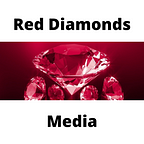Organizations and Leaders Can Learn Better to See Employees as People
Humanity and relationship-focused behavior in business and the workplace can pay dividends, from higher quality interactions, less distrust, more trust, healthy reputation and stronger collaboration, yet it’s not yet widely valued.
Strength in understanding other people’s emotions, knowing our own, extending sincerity of empathy, regulating our emotions, especially the negative ones and learning how to build, nurture and maintain healthy relationships is not easy yet when organizational leaders expect it and help their people deliver it to each other, it gets positive attention, generates trust, appreciation, psychological safety and respect.
“The COVID-19 crisis has changed my points of departure on what it takes to be a leader and incorporate (emotional intelligence) into everything,” says Peter Polizzi, vice president of global sales engineering at Splunk, a Silicon Valley big data analytics company.
He has personally and professionally developed how he communicates in the workplace and it wasn’t education learned in traditional ways.
“My communication and change management strategies have changed. This isn’t something you can learn from reading a book. This is management ‘by-touch,’ sensing what the organization needs and making sure every interaction is personal — across any medium,” Polizzi says.
Gaining understanding that not every person is the same emotionally and has different needs to best be understood, valued and led is helpful wisdom, yet not knowledge, skill and a process that all leaders apply. Improved social awareness and commitment to more personal, human communication and interactions is possible for busy leaders.
“You can adjust your message by double-clicking on your attitude, your content and your style to adapt to each identity in your organization, at all levels,” Polizzi says.
When organizational leaders exhibit this level of humanity as a consistent, reliably effective core practice inside and outside the organization, it stands out and is likely to make the intended difference.
“Managing through a crisis is critical to remember the human side. I will remember how asking ‘how is your family?’ has become the norm, and I will remember this time as the moment where a new foundational part of how I lead was born,” Polizzi says. “I will remember this crisis as the catalyst for this and a time when true human connections were built.”
Organizations and their leaders often don’t realize the protective qualities that more heart-centered leadership can also offer against frequency and intensity of disputes, ongoing conflicts, potential scandals and crises.
“The most critical role of a leader during challenging times is to lead from the front. It’s critical and valuable to the people you manage. You have to be visible in order to communicate and you need to be able to communicate on different levels, Polizzi says. “Push aside everything you learned from an MBA program and reach people where it matters to them most.”
Creating these types of human interactions and a culture that reflects respect and compassion, seeing people’s humanity as important, is challenging, yet vital work.
“The best thing you can do as a leader to create E.I. and to ingrain it into your organization is to demonstrate it every day,” Polizzi says. “As a leader, you need to keep people motivated and boost morale to keep your team focused on their purpose. It is easy to fall back in your seat and get overwhelmed, but if you are consistent with your mission, demonstrating it daily and if you are visible in supporting to your teams, by also maintaining a constant connection with your employees, only positive things can come out of that.”
Leaders are usually not aware that this approach and practice to human interaction and leadership will be well received, models well for employees, changes culture and creates a reputation that is an invaluable asset and tool of influence and persuasion.
“You build an organization of trust,” Polizzi says. “People will follow you if they trust you and think that you have their best interest in mind.”
Michael Toebe is a reputation and crisis analyst and practitioner, serving individuals and organizations. He serves as a researcher, analyst, consultant, advisor, coach and communications provider and has provided analysis and advisory for online publications Chief Executive, Corporate Board Member, Corporate Compliance Insights, New York Law Journal and Training Industry and regularly publishes at Red Diamonds Essays and Reputation Specialist Essays (both on the Medium platform) and LinkedIn.
(Image by Gordon Johnson from Pixabay)
